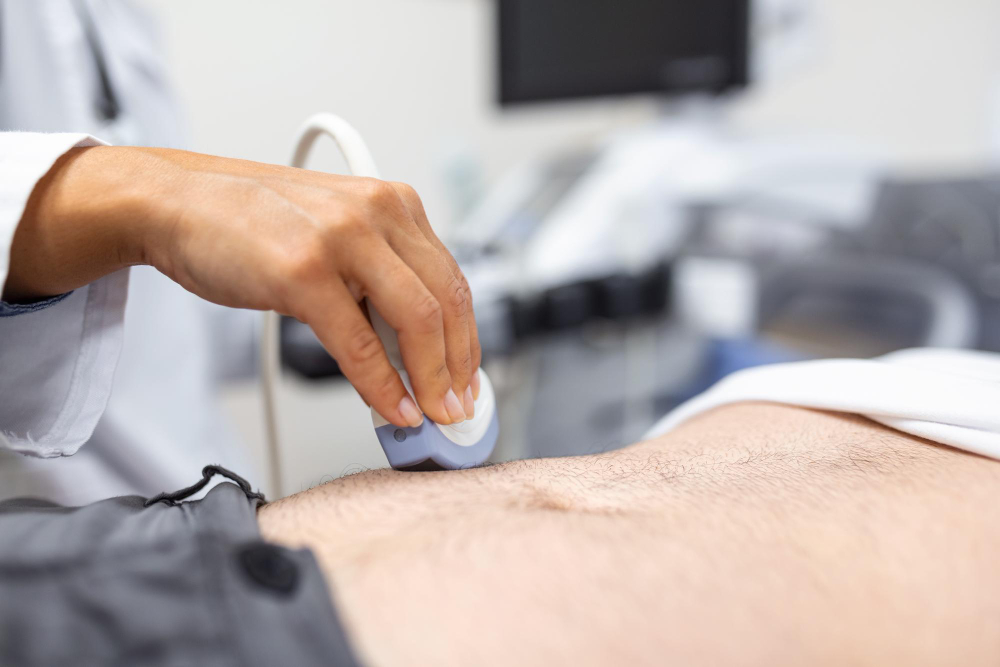FibroScan testing is a noninvasive technique carried out by gastrointestinal (GI) doctors to assess the health of the liver and identify issues that might impact the quality of liver function. Conducted with ultrasound-based imaging, this cutting-edge diagnostic test, also referred to as transient elastography, gauges the amount of fat in the liver (hepatic steatosis). The FibroScan test also permits specialists to assess the degree of stiffness in the liver tissue. A significant degree of stiffness can indicate the existence of fibrotic scarring, hepatitis, or additional concerns. In the event that hepatic steatosis or fibrosis is a possibility, the experienced physicians at GI Alliance may perform a FibroScan analysis to diagnose and determine the extent of the issue.
When are FibroScan procedures performed?
As digestive health specialists, GI physicians commonly treat diseases involving the liver and may suggest a FibroScan analysis for people with indications of early to advanced liver problems. A gastroenterologist might advise FibroScan tests for individuals who demonstrate one or more signs of a liver condition or injury, like:
- Nonalcoholic fatty liver disease
- Alcohol-related liver damage
- Numerous kinds of liver inflammation
- Advanced liver fibrosis (cirrhosis)
- Insulin resistance syndrome
What is the FibroScan process?
FibroScan is performed at GI Alliance locations around the country and might be ordered as a substitute for a biopsy of the liver. It is typically carried out in combination with other types of diagnostic imaging or blood work to comprehensively evaluate a liver condition. During the assessment, patients lie flat on a medical table. The technician then places the FibroScan ultrasound wand over the upper right quadrant of the abdominal area, below the ribs. A series of pulses are emitted directly into the liver, determining the rate at which sound frequencies pass through the organ. FibroScan tests take approximately 15 minutes or so to carry out and are typically comfortable.
How to interpret your FibroScan CAP score
After FibroScan assessments are finished, the results are forwarded to your provider. The test produces a numerical score that correlates with the measurement of fatty change inside the liver, called a CAP (controlled attenuation parameter) score, as well as a fibrosis result.
-The FibroScan controlled attenuation parameter result is measured in dB/m and helps establish the level of fat cells within an individual’s liver. A larger CAP result indicates a higher degree of steatosis and a higher degree of fatty liver.
-The fibrosis score provides data on the extent of scarring (fibrosis) in your liver, spanning from none to mild or late-stage scarring (cirrhosis).
A follow-up visit with your GI specialist will be booked to review and speak about the exam outcomes. Advice for treatment or lifestyle and behavior changes may then be provided based on your specific circumstances and health needs. Subsequent FibroScan procedures can be ordered on a set basis to monitor the health of the liver or to find out if liver disease has progressed.
Learn more about FibroScan at GI Alliance
As one of the largest organs in the body, the liver plays a crucial role in systemic health. Hepatic steatosis and liver fibrosis might affect a number of facets of an individual’s comprehensive wellness, from producing fatigue and abdominal swelling to increasing the chance of experiencing liver failure and liver cancer. The skilled staff at GI Alliance locations around the country provide nonsurgical transient elastography procedures to detect the existence of fatty liver disease or fibrotic scarring. To get more information about this diagnostic test and schedule an appointment with a gastrointestinal specialist, please contact a GI Alliance location near you.


